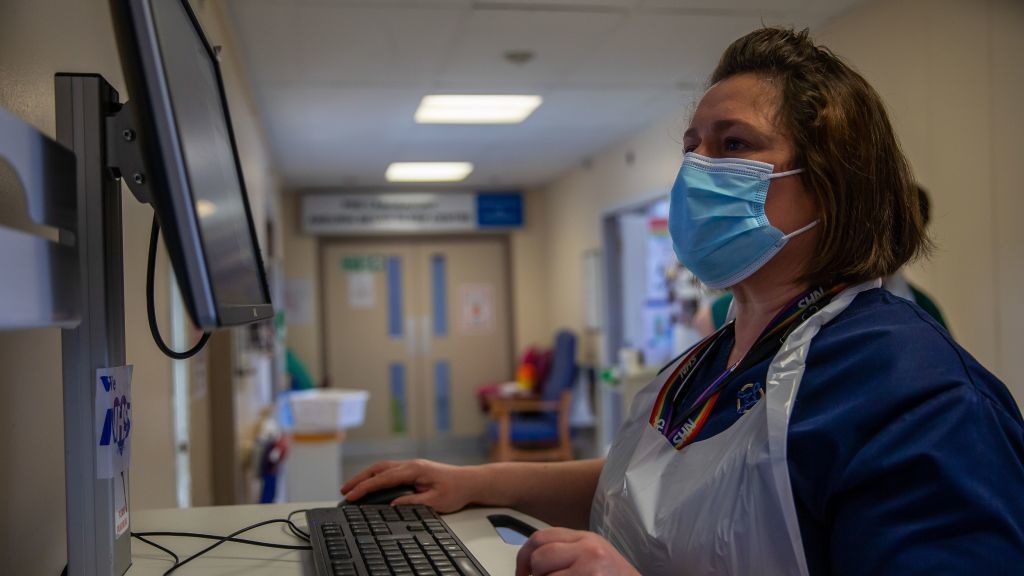Scottish NHS board's "major" IT problems enter second day
NHS Greater Glasgow and Clyde Board forced to postpone operations and chemotherapy sessions due to IT glitch.

One of the UK's largest NHS boards has confirmed that hundreds of outpatient appointments have been postponed due to a "major IT problem."
The NHS Greater Glasgow and Clyde board said the issue affects the way staff access clinical and administrative systems, and has been ongoing since yesterday.
In healthcare, any IT failure really can be a matter of life and death.
Further to this, the problem has also caused delays to switchboard calls being answered.
"As a result, we have had to postpone a number of operations, chemotherapy sessions and outpatient appointments," the organisation said in a statement.
"In total we have postponed, 288 outpatient appointments, four planned inpatient procedures, 23 day cases [and] 40 chemotherapy sessions."
In a follow-up statement, the organisation said it had been working through the night to fix the problem, but as yet it remains unresolved.
"We have, however, been able to put in place a fix which we believe will ensure that chemotherapy patients are not affected by the continued IT issue," the statement read.
Get the ITPro daily newsletter
Sign up today and you will receive a free copy of our Future Focus 2025 report - the leading guidance on AI, cybersecurity and other IT challenges as per 700+ senior executives
"Unfortunately, there will still be some patients whose planned appointments today will be affected and we are currently in the process of assessing which patients this will impact upon.
"We are continuing to work to get the system back on line as soon as possible and would like to apologise again to those patients who have been inconvenienced."
The board serves a population of 1.2 million people, and oversees the running of more than 300 GP surgeries and 35 hospitals in the area.
Tola Sargeant, a director at analyst house TechMarketView, said the board's problems should serve as a warning to other healthcare organisations about the shortcomings of technology.
"It is too early to say what caused the issue and whether it could have been prevented. Once the problem is resolved, the board's suppliers and in-house team alike will have time to reflect on the lessons learnt," she said.
"If nothing else, [the] problems ought to act as a stark warning to other NHS organisations about the importance of having the right backup and disaster recovery plans in place. In healthcare, any IT failure really can be a matter of life and death."
-
 Should AI PCs be part of your next hardware refresh?
Should AI PCs be part of your next hardware refresh?AI PCs are fast becoming a business staple and a surefire way to future-proof your business
By Bobby Hellard
-
 Westcon-Comstor and Vectra AI launch brace of new channel initiatives
Westcon-Comstor and Vectra AI launch brace of new channel initiativesNews Westcon-Comstor and Vectra AI have announced the launch of two new channel growth initiatives focused on the managed security service provider (MSSP) space and AWS Marketplace.
By Daniel Todd
-
 NHS leaders are keen to adopt new digital tools, but IT can't solve problems on its own
NHS leaders are keen to adopt new digital tools, but IT can't solve problems on its ownA survey of healthcare decision-makers finds they believe IoT devices and electronic health recording could help them reach more patients quicker
By Emma Woollacott
-
 How a paperless approach cut wasted staff hours at Bradford Teaching Hospitals Trust
How a paperless approach cut wasted staff hours at Bradford Teaching Hospitals TrustCase study Through DrDoctor’s digital portal for patient appointments and advice, the Rheumatology team at Bradford Teaching Hospitals NHS Foundation Trust has dramatically cut
By Peter Ray Allison
-
 Healthcare’s next chapter
Healthcare’s next chapterwhitepaper Revolutionizing how you care with EPR experts you can trust
By ITPro
-
 How digital experience management helped an NHS trust improve productivity
How digital experience management helped an NHS trust improve productivityCase study Princess Alexandra Hospital NHS Trust used digital experience management to cut device failure and restore time to clinicians
By Rene Millman
-
 Will the NHS Federated Data Platform transform UK healthcare?
Will the NHS Federated Data Platform transform UK healthcare?In-depth Plans to create a data platform in partnership with the private sector could revolutionize NHS treatment, but concerns over data privacy and security are festering
By Jonathan Weinberg
-
 NHS IT issues costing doctors more than 13 million hours annually
NHS IT issues costing doctors more than 13 million hours annuallyNews Doctors warn that ageing IT infrastructure is impacting patient care and clinical outcomes
By Ross Kelly
-
 Automation is helping the NHS clear its patient backlog, but not as quickly as expected
Automation is helping the NHS clear its patient backlog, but not as quickly as expectedAnalysis The healthcare service's big bet on robotic process automation is making 'impactful' but slow progress
By Connor Jones
-
 DHSC sets out ambitious targets for NHS App by 2023, beyond
DHSC sets out ambitious targets for NHS App by 2023, beyondNews Ongoing NHS digitisation efforts will form backbone of the new system
By Rory Bathgate